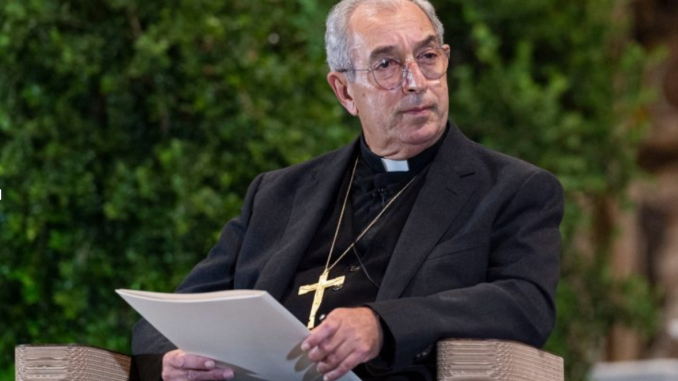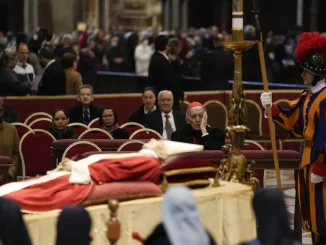
Earlier this year, the Superiors of the Institutes and Communities once known as Ecclesia Dei signed a joint communiqué, in which they expressed their dismay at the motu proprio Traditionis Custodes and also asked for the possibility of a confrontation, seeking “true dialogue and to appoint a mediator who is for us the human face of this dialogue.”
In response to this request, Cardinal De Donatis, Pope Francis’ Vicar for the Diocese of Rome issued a new letter-decree, ordering that there will be no sacramentals or sacrament and no Easter Triduum for the faithful who are attached to the Latin Mass. Priests in Rome are to request a written authorisation to be able to celebrate in the ancient rite. The letter-decree shows an unusual harshness, in open contradiction with the reforms championed by Pope Benedict XVI.
It is not very clear what idea exists in Rome about fostering dialogue, however the publication of the decree signed by Cardinal De Donatis seems to take the term in a very broad sense. Too bad, because the diocese itself has recently even created a tutorial video on how to fulfill the synodality hoped for by Pope Francis: 6 minutes and 23 seconds of garbage, which raises some doubts as to whether it is still necessary to pray every morning. According to the tutorial, the catchphrases are “listen to each other, listen to everyone”… unless the faithful want a bit more than just the Latin Mass.
Needless to say that De Donatis’ letter is framed in the usual manner. First, there is an ode to “continuing the work of” facilitating ecclesial communion to those Catholics who feel bound to some previous liturgical forms”, a reference taken from John Paul IIs “Ecclesia Dei” of 1988. This is coupled with the objective of “exercise a lively pastoral charity towards the faithful who “do not exclude the validity and legitimacy of the liturgical reform, the dictates of the Second Vatican Council and the Magisterium of the Supreme Pontiffs “as now found in “Traditionis Custodes.”
De Donatis adds that therefore all the liturgical books of the ancient Roman Rite, except the Missal, are forbidden. It can also be deduced that the 1962 Missal is also forbidden, just to promote ecclesial communion. Among the “specific determinations” which De Donatis includes in his letter, there is a singular implementation of the “lively pastoral charity” towards the faithful: in none of the churches of the Pope’s diocese, where the celebration with the 1962 Missal is planned, it is possible to take part in the Sacred Triduum in the ancient rite. Really, a nice thought to make the faithful linked to the Roman liturgy prior to the reform feel at ease in the “post-conciliar church”.
Therefore, in summary, this is an interesting interpretation of the current pontificate: from the work for an “outgoing church”, to the effort of pushing some people out of the Church.




Be the first to comment